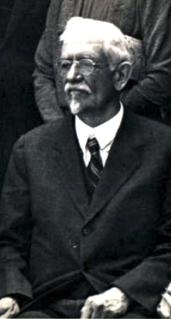A Quote by Stephen Hawking
It was Einstein's dream to discover the grand design of the universe, a single theory that explains everything. However, physicists in Einstein's day hadn't made enough progress in understanding the forces of nature for that to be a realistic goal.
Related Quotes
I had two passions when I was a child. First was to learn about Einstein's theory and help to complete his dream of a unified theory of everything. That's my day job. I work in something called string theory. I'm one of the founders of the subject. We hope to complete Einstein's dream of a theory of everything.
Albert Einstein, who discovered that a tiny amount of mass is equal to a huge amount of energy, which explains why, as Einstein himself so eloquently put it in a famous 1939 speech to the Physics Department at Princeton, 'You have to exercise for a week to work off the thigh fat from a single Snickers.'
Superstring theories provide a framework in which the force of gravity may be united with the other three forces in nature: the weak, electromagnetic and strong forces. Recent progress has shown that the most promising superstring theories follow from a single theory. For the last generation, physicists have studied five string theories and one close cousin. Recently it has become clear that these five or six theories are different limiting cases of one theory which, though still scarcely understood, is the candidate for superunification of the forces of nature.
The supposed astronomical proofs of the theory [of relativity], as cited and claimed by Einstein, do not exist. He is a confusionist. The Einstein theory is a fallacy. The theory that ether does not exist, and that gravity is not a force but a property of space can only be described as a crazy vagary, a disgrace to our age.
Einstein and the Quantum is delightful to read, with numerous historical details that were new to me and cham1ing vignettes of Einstein and his colleagues. By avoiding mathematics, Stone makes his book accessible to general readers, but even physicists who are well versed in Einstein and his physics are likely to find new insights into the most remarkable mind of the modern era.
They say much about the Einstein's theory now. According to Einstein the ether does not exist and many people agree with him. But it is a mistake in my opinion. Ether's opponents refer to the experiments of Maykelson - Morli [Michelson-Morley] who made attempts to detect the Earth's movement relative to the fixed-bed ether. These experiments failed, however it didn't mean the ether's non-existence. I always based as fact the existence of mechanical ether in my works and therefore I could achieve positive success.
One of the most exciting things about dark energy is that it seems to live at the very nexus of two of our most successful theories of physics: quantum mechanics, which explains the physics of the small, and Einstein's Theory of General Relativity, which explains the physics of the large, including gravity.
Relativity was a highly technical new theory that gave new meanings to familiar concepts and even to the nature of the theory itself. The general public looked upon relativity as indicative of the seemingly incomprehensible modern era, educated scientists despaired of ever understanding what Einstein had done, and political ideologues used the new theory to exploit public fears and anxieties-all of which opened a rift between science and the broader culture that continues to expand today.
When you look at the calculation, it's amazing that every time you try to prove or disprove time travel, you've pushed Einstein's theory to the very limits where quantum effects must dominate. That's telling us that you really need a theory of everything to resolve this question. And the only candidate is string theory.
































